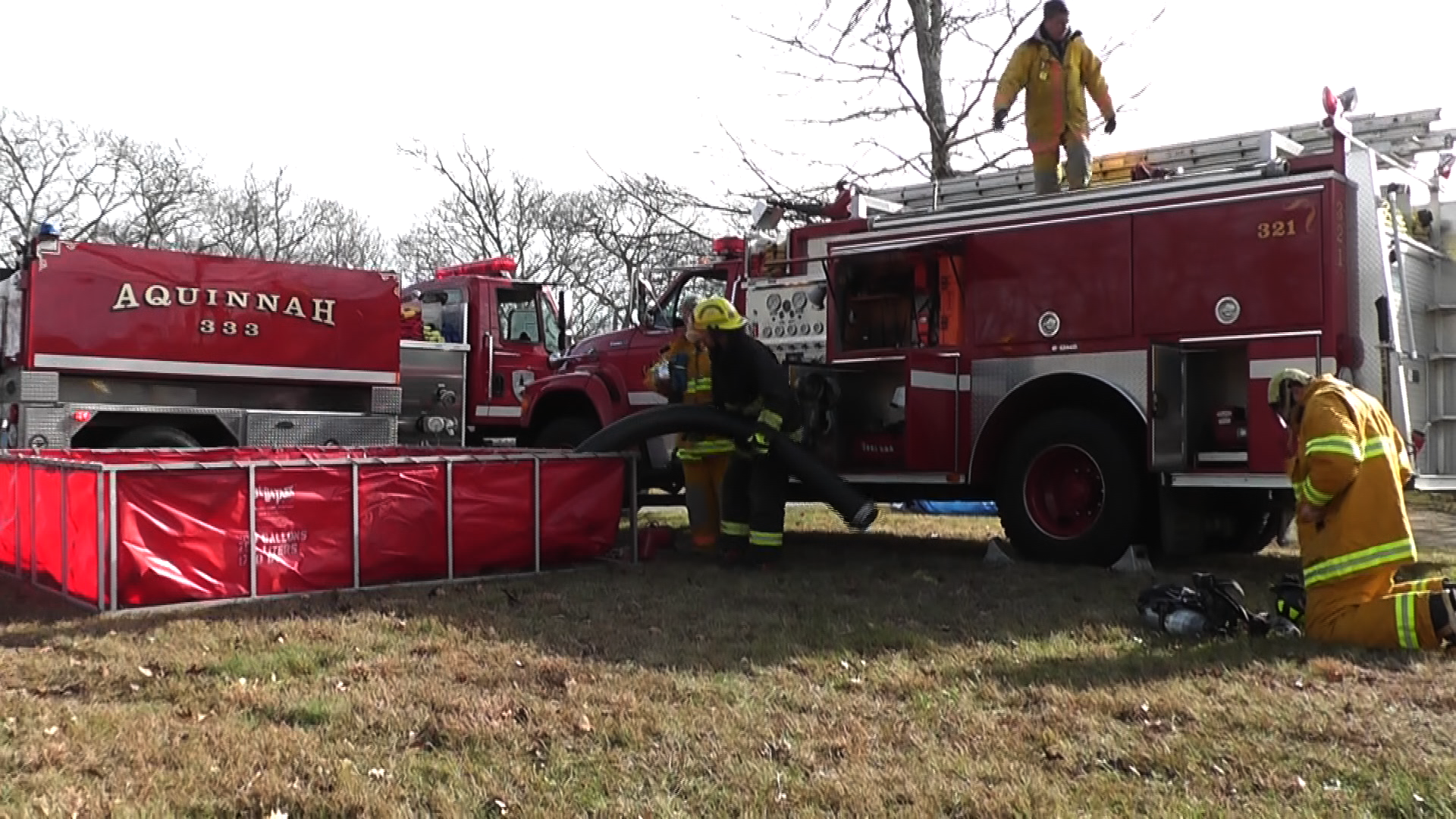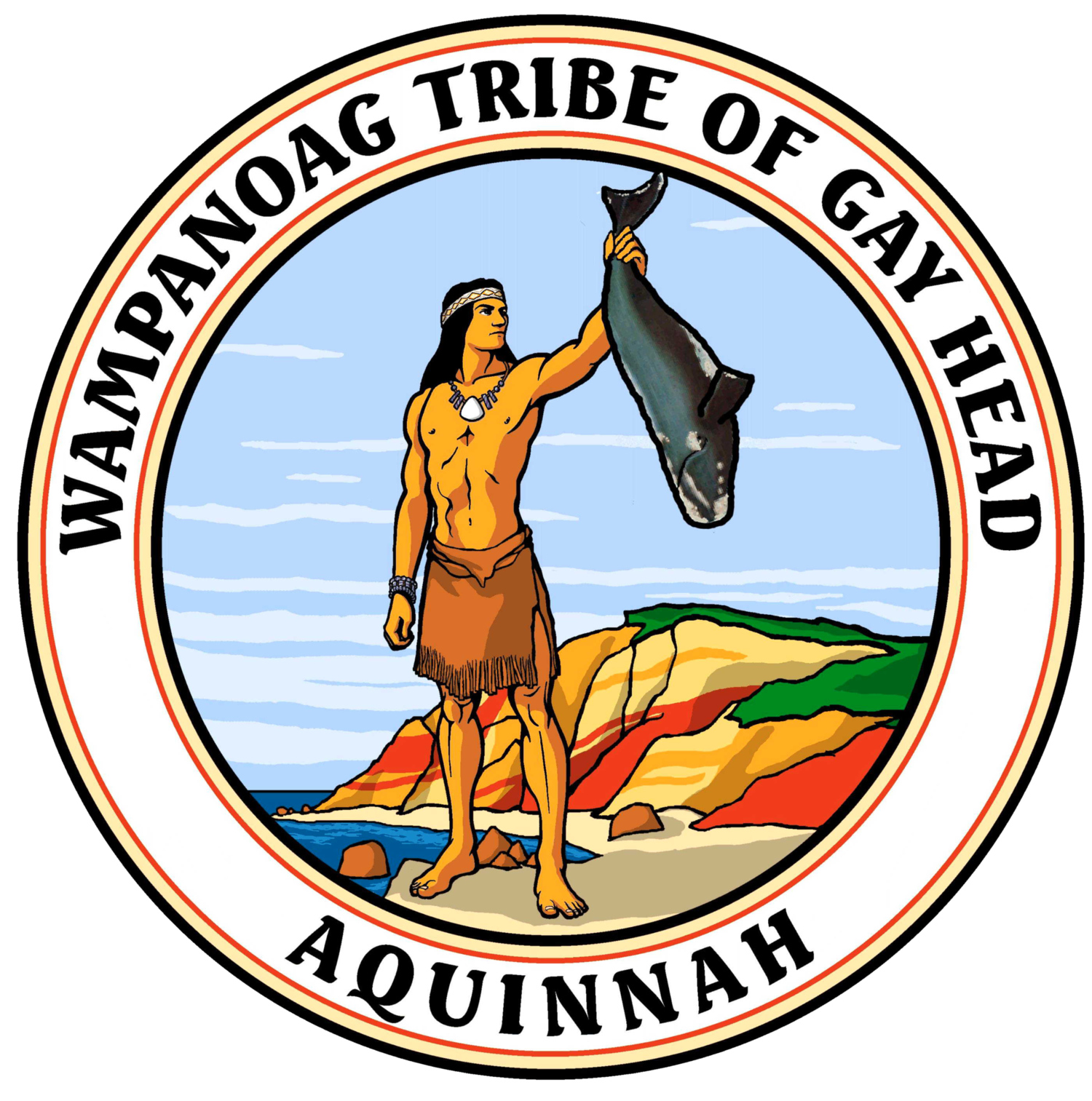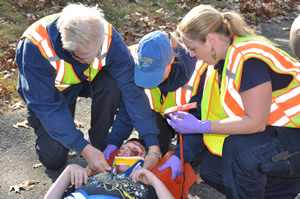
Emergency Response
The Wampanoag Tribe feels a strong responsibility to the Island community, and as residents of the Island’s smallest town, has a special bond with the Town of Aquinnah. As a consequence, the Natural Resources Department has become a part of the Island’s emergency response network. The Department employs two Tribal Conservation Rangers, both of whom are certified in law enforcement and emergency medical response.
MCI drill
Rangers
The Wampanoag Aquinnah Ranger Service was created to protect the Tribe’s Cultural, Natural and Environmental Resources from degradation and trespass. Tribal Rangers Michael Sellitti Jr. and Tyler Moreis are the public face of the Natural Resources Department, regularly interacting with the public in a variety of ways: from enforcing tribal laws and regulations, town ordinances, providing emergency medical care, to scientific research, in-field studies and data collection. Rangers put a strong emphasis on positive and educational interactions with the general public, looking for ways to help the public understand the Tribe and its membership. They can often be seen fielding questions from curious island visitors and conversing about possible partnerships and shared goals with island locals and public safety personnel. They continue to strive for excellence in their work, broader knowledge and outreach with the public, and a reputation for always lending assistance where it is needed. Rangers are also involved in the less seen, but equally important, emergency preparedness planning and training. This planning component is of benefit to the Tribe and the Town of Aquinnah, as it encompasses a cumulative and cooperative approach to large scale disasters and emergencies.
community contributions
The Tribe also contributes thousands of dollars annually in support of the Tri-Town Ambulance Service. The Tribe also procures and donates more than just monetary funding. In fact, over the last decade the Tribe has purchased and donated two ambulances to Tri-Town in order to make sure each of the three up-island towns had their own ambulance in town to reduce emergency response time and increase patient outcomes. The Tribe also purchased and donated two Lucas 2 automated chest
compression units, which provide continuous and effective chest compressions during cardio-pulmonary resuscitation (CPR). The last component in the Tribe’s on-going contribution to greater
public safety and emergency response is the hiring of contractors and hosting of emergency response drills. These drills focus on a variety of aspects, from hazardous waste response to multiple casualty incidents, and give responders the opportunity to work through complex and difficult situations in order to identify areas of strengths and weaknesses in response efforts and generate ideas on how to improve overall response capabilities.



